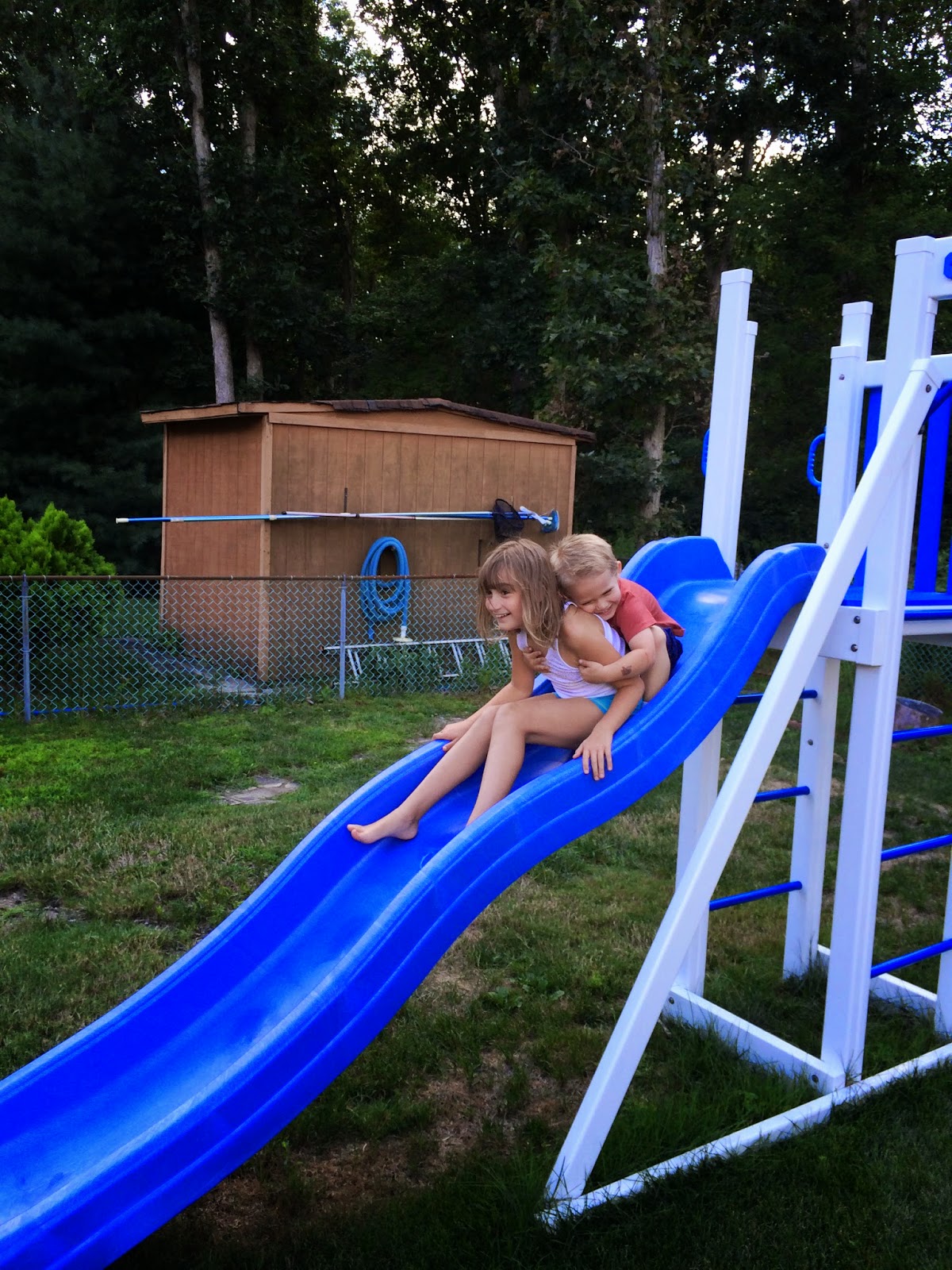Genetics and autism
 |
| My daughter Marley with my nephew Shawn. |
What are the realities of autism being genetic. I am not an expert on genetics or anything like that, but I do know that autism has affected my family. My 2nd cousin is 16 years old and diagnosed at a very early age with autism. Just recently, I discovered a few photos of my grandfather. In each photo he was not looking at the camera. It wasn't a situation that he was looking away by accident, it was an intentional 'can't look in your eyes' type of situation. When I asked my mother about him and his tendencies, she admitted that, now in hindsight, my grandfather had stimming tendencies. He would pace back and forth, just like Marley, and rub his fingertips insistently. He would do this for a long while, and people around him would notice and comment. My uncles would occasionally tease him endearingly.
I also know that my husbands aunt, although never diagnosed, had severe tendencies leaning towards autism. She was more towards the mid to low functioning. She was never able to care for herself. She never lived alone, or got married. After her caretaker, who was her sister, passed away she had to be put in a home for mentally disabled individuals. Needless to say, she did not take this very well. She passed away in her mid eighties at the home.
Breaks my heart to think that if Marley was born just a few decades earlier, she would of been diagnosed with juvenile or infantile schizophrenia because of her self talk!!!
Following this post is an article on genetics and autism. I certainly do think it runs in families. It does in mine! During the week I'll be posting articles on this subject matter through twitter. You can follow me at VanessaK245.
There are several books on the subject of Autism. Check out the side ad offering books that Amazon has. If you are interested in reading more about this, click on the link and it will take you to a whole list of books to chose from. Please know that this is an affiliate link, and it will help me keep this blog going. I truly appreciate the support.
Genetic means pertaining to the genes. Hereditary means inherited. A genetic disorder is usually, but not always inherited
Hereditary is when something is passed through your Genes. Genetic IS Hereditary.
However, Congenital is is a genetic abnormality that occurred in the fetus, not in the actual passed down genes
There are several books on the subject of Autism. Check out the side ad offering books that Amazon has. If you are interested in reading more about this, click on the link and it will take you to a whole list of books to chose from. Please know that this is an affiliate link, and it will help me keep this blog going. I truly appreciate the support.
Genetic means pertaining to the genes. Hereditary means inherited. A genetic disorder is usually, but not always inherited
Hereditary is when something is passed through your Genes. Genetic IS Hereditary.
However, Congenital is is a genetic abnormality that occurred in the fetus, not in the actual passed down genes
Genetics play a bigger role than environmental causes for autism
Genetics plays more of a role in the development of autism than environmental causes, according to new research published Sunday in Nature Genetics.
The study found that 52% of autism risk comes from common genes, while only 2.6% are attributed to spontaneous mutations caused by, among other things, environmental factors.
“These genetic variations are common enough that most people are likely to have some,” said Joseph Buxbaum, a researcher at the Mount Sinai School of Medicine and one of the lead authors on the study. “Each one has a tiny effect on autism risk, and many hundreds or thousands together make a significant risk.”
Using Sweden’s health registry, the researchers compared 3,000 people with autism to 3,000 people without autism to determine the degrees that common and rare genes, as well as spontaneous mutations, contribute to autism risk. The study authors also compared the study’s results with a parallel study of 1.6 million Swedish families that identified specific genetic risk factors.
Buxbaum says the presence of these common genes can only determine the risk of autism, not whether or not the condition will develop. And even though spontaneous mutations only account for a small percentage of autism risk, their effect is significant.
“[Individuals] might have all the common variants there as part of their background risk, but it took this initial hit to push them over the edge,” Buxbaum said.
Chris Gunter, an autism researcher at the Marcus Autism Center and professor at the Emory University School of Medicine, says the findings of this study are similar to those reported in other studies.
“There is no one gene for autism,” Gunter said. “Instead there are many different genetic variations which each contribute a little bit to the risk of developing the group of symptoms we diagnose as autism.”
She added that we still don’t know exactly how much these different factors contribute to the development of autism.
Once scientists accumulate more data on the autism population, Buxbaum says this new research could help develop a “risk score” - such as the one that exists for heart attacks - that would help patients determine the likelihood of family members developing autism.
“The autism field has changed dramatically,” Buxbaum said. “We now have immense power to find both common and rare and spontaneous mutations in autism. That’s really the exciting part.”
| Post by: Filed under: Autism • Living Well |


Comments
Post a Comment